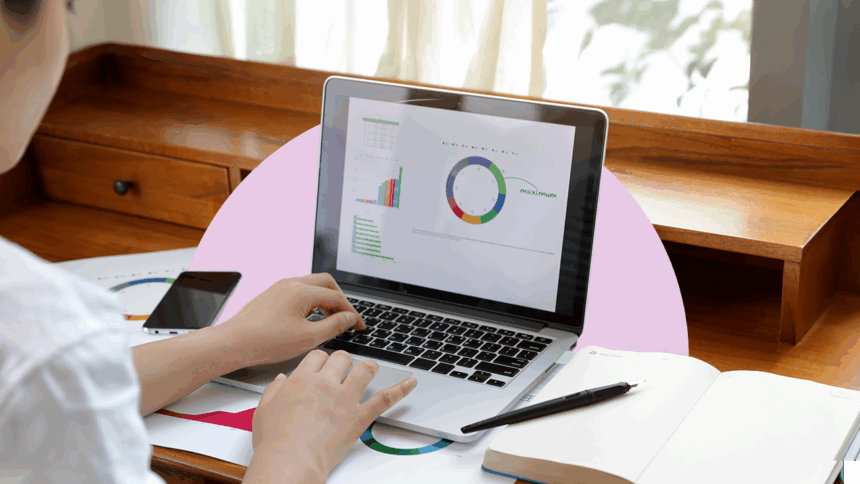
Images by GetTyimages. Illustrations by bankrate
We live in a world of serious income inequality and have well documented that little progress has been made when closing. The gap in racial wealth. There are similar unjust facts related to our present age. Your income and credit determine how easy (or difficult) it is to climb out of debt.
Take a look at the research published in April by two national lenders.
- Santander reports that over three-quarters of middle-income Americans “believe they are on the right financial trajectory,” and keeps them “up to date with their bills.”
- Achievements should be noted that less than a quarter (19%) of survey respondents with sub-620 credit scores find their debts easier to manage.
It’s no wonder. The lower your income and credit, the fewer options (good) you need to get out of funk.
There is a problem of debt inequality
This is not exactly broken news, but it appears to be getting worse. Consider that at least one in ten credit card holders (11%) only made minimum payments on outstanding balances in the fourth quarter of 2024. Federal Reserve Bank of Philadelphia I started tracking this data point 12 years ago.
Low-income earners have no monopoly on accumulating credit card debt. But high-income individuals and credit individuals and families have time to plan ways to get out of it.
Anyone with significant debt and low income knows that waiting for a lower fee is not a realistic option. Many consumers need solutions now. After all, consumer debt is the highest ever. Particularly for the subprime segment highlighted in Achieve the survey.
Not all subprime borrowers are struggling
Other recent studies are more optimistic. Experian published an April survey highlighting strategies for rewarded consumers using what was previously considered “out of control.”
- Second job or Side hustle (36%)
- Adoption of snowball debt repayment methods (26%)
- Using budgeting apps (23%)
“I am encouraged by the number of consumers who said they’ve paid off their unruly debt,” Bankrate said, Rod Griffin, senior director of public education and advocacy at Experian. “There is a lot of uncertainty right now, and it’s easy to focus on negativity, but consumers are taking steps to achieve their financial goals.”
Call me pessimistic, but Roger Experian Survey I will omit the mention of respondents’ credit scores (after all, Experian is the credit bureau). Still, it was found that nearly a quarter of respondents (23%) reported a “Cinderella story” that corrected their personal finances. Also, 45% said that paying off their debts has helped them improve their lives.
What should I do if I’m suffering from debt?
Therefore, a happy ending is possible, even if your story arc is heavily dependent on where you are today. For example, if you have good credit, you might jump straight into shopping for a debt consolidation loan.
Pay off debts with low income Credits, on the other hand, may feel like climbing a mountain barefoot.
When people are overwhelmed and missed bill payments, they often don’t know what steps to take, but the right strategy at the moment can make a huge difference. We want consumers to know that they are not alone and that help is available.
Brad Stroh has achieved co-founder and co-CEO
Consider these steps to get started.
Dial lender
If you are likely to miss out on future payments, or perhaps you are already behind on your payments, start a conversation with your lender. Describe your situation and learn about potential options. For example, the discovery of personal loan lenders will allow some struggling customers to temporarily reduce their monthly membership fees, extend their repayment period, and remove their delinquent status by making three straight-on-time payments.
Joshua Turnbull, Vice President of Consumer Loans, Transunion’s Senior Vice President of Consumer Loans, told Bankrate:
Please ask for help
It’s difficult to go alone. Therefore, in addition to calling lenders and loan servicers, you can also consult with representatives of non-profit credit counseling institutions. Debt Management Plan Or propose debt attorney Debt SettlementHere are some common examples.
Update and optimize your budget
You may feel that it’s too late to start tracking your spending, Set a budget It helps you organize your debt account and prioritize it along with other drains in your revenue.
Choose a repayment strategy
Like Experian survey respondents who utilize the Snowball Receipt Act (or pay off the lowest balance before “snowman” their motivation to repay higher balances), there is a good or minimal repayment option somewhere. You need to find it.
Use a personal loan to pay off your credit card debtfor example, you need to pay monthly, Cosigner or Co-rower Who can help you qualify for a lower rate.
Get on track
The snowman method may be best if you need to occasionally pick up while paying back. But no matter which route you choose to balance zero, you keep yourself motivated and proactive. Some borrowers, for example, have achieved success by rewarding themselves with each time they hit a payoff milestone. Stick to it whatever works for you.


